第7章 I(4)
He would have done much better to have laid his impressions before some experienced physicians and surgeons, such as Dr. Mead and Mr. Cheselden, to have asked them to try his experiment over again, and have been guided by their answers. But the good bishop got excited; he pleased himself with the thought that he had discovered a great panacea; and having once tasted the bewitching cup of self-quackery, like many before and since his time, he was so infatuated with the draught that he would insist on pouring it down the throats of his neighbors and all mankind.
The precious fluid was made by stirring a gallon of water with a quart of tar, leaving it forty-eight hours, and pouring off the clear water. Such was the specific which the great metaphysician recommended for averting and curing all manner of diseases. It was, if he might be believed, a preventive of the small-pox, and of great use in the course of the disease. It was a cure for impurities of the blood, coughs, pleurisy, peripneumony, erysipelas, asthma, indigestion, carchexia, hysterics, dropsy, mortification, scurvy, and hypochondria. It was of great use in gout and fevers, and was an excellent preservative of the teeth and gums; answered all the purpose of Elixir Proprietatis, Stoughton's drops, diet drinks, and mineral waters; was particularly to be recommended to sea-faring persons, ladies, and men of studious and sedentary lives; could never be taken too long, but, on the contrary, produced advantages which sometimes did not begin to show themselves for two or three months.
"From my representing Tar Water as good for so many things," says Berkeley, "some perhaps may conclude it is good for nothing. But charity obligeth me to say what I know, and what I think, however it may be taken. Men may censure and object as they please, but I appeal to time and experiment. Effects misimputed, cases wrong told, circumstances overlooked, perhaps, too, prejudices and partialities against truth, may for a time prevail and keep her at the bottom of her well, from whence nevertheless she emergeth sooner or later, and strikes the eyes of all who do not keep them shut." I cannot resist the temptation of illustrating the bishop's belief in the wonderful powers of his remedy, by a few sentences from different parts of his essay. "The hardness of stubbed vulgar constitutions renders them insensible of a thousand things that fret and gall those delicate people, who, as if their skin was peeled off, feel to the quick everything that touches them. The tender nerves and low spirits of such poor creatures would be much relieved by the use of Tar Water, which might prolong and cheer their lives." "It [the Tar Water] may be made stronger for brute beasts, as horses, in whose disorders I have found it very useful." " This same water will also give charitable relief to the ladies, who often want it more than the parish poor; being many of them never able to make a good meal, and sitting pale, puny, and forbidden, like ghosts, at their own table, victims of vapors and indigestion." It does not appear among the virtues of Tar Water that "children cried for it," as for some of our modern remedies, but the bishop says, "I have known children take it for above six months together with great benefit, and without any inconvenience; and after long and repeated experience I do esteem it a most excellent diet drink, fitted to all seasons and ages." After mentioning its usefulness in febrile complaints, he says: "I have had all this confirmed by my own experience in the late sickly season of the year one thousand seven hundred and forty-one, having had twenty- five fevers in my own family cured by this medicinal water, drunk copiously." And to finish these extracts with a most important suggestion for the improvement of the British nation: "It is much to be lamented that our Insulars who act and think so much for themselves, should yet, from grossness of air and diet, grow stupid or doat sooner than other people, who, by virtue of elastic air, water-drinking, and light food, preserve their faculties to extreme old age; an advantage which may perhaps be approached, if not equaled, even in these regions, by Tar Water, temperance, and early hours."
Berkeley died at the age of about seventy; he might have lived longer, but his fatal illness was so sudden that there was not time enough to stir up a quart of the panacea. He was an illustrious man, but he held two very odd opinions; that tar water was everything, and that the whole material universe was nothing.